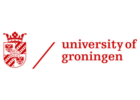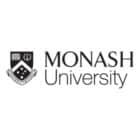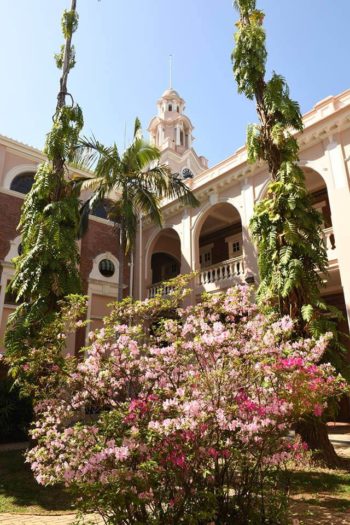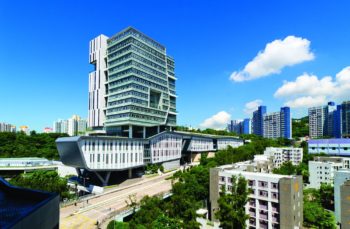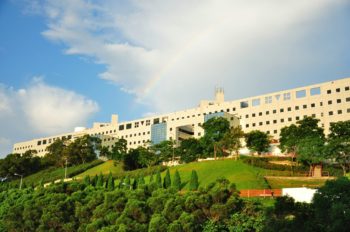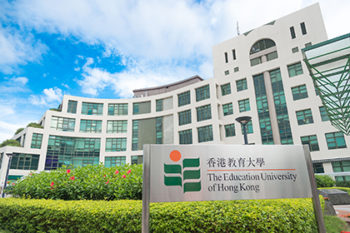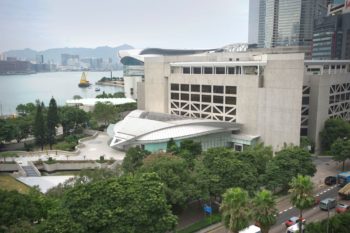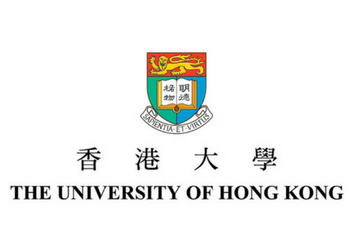

The University of Hong Kong - HKU (reviews)
Study at The University of Hong Kong - HKU
The University of Hong Kong - HKU ratings and description
The University of Hong Kong, 香港大學 in Chinese, or HKU as it is abbreviated to, is the oldest institution of higher education in Hong Kong. In March 1910 the university’s foundation stone was laid by the Governor of Hong Kong, and the institution was opened to students two years later. At this time, HKU was made up of three faculties, namely: Arts, Engineering, and Medicine – the Faculty of Medicine was borne out of the Hong Kong College of Medicine.Show more
FREQUENTLY ASKED QUESTIONS ABOUT The University of Hong Kong
Based on the EDUopinions rankings, the The University of Hong Kong rating is 4.1. If you want to know more about this school, read the student reviews on our website.
The The University of Hong Kong offers courses related to the fields:
- Management
- Computer Science
- Communication
- Law
- Sociology
The University of Hong Kong Campuses are located in:
- Hong Kong, China
The universities similar to The University of Hong Kong are:
Studies with verified reviews





12 Student Reviews
-
Data Science23 Feb, 2023
 StudentHKAcademic
StudentHKAcademicVery good academic, caes course amazing, ccs are all amazing, professors are excellent, the architecture and infrastructure is splendid, people here are awesome, made some really nice friends, and teachers support us
View moreProgramme: Data ScienceDegree: Bachelor'sGraduation: 2023Delivery Type: On CampusCampus: Hong Kong -
Data Science06 Feb, 2023
 HatimPKDiversified culture
HatimPKDiversified cultureI highly recommend The University of Hong Kong to students all around the world because of their diversified culture, teaching standards, and the people which make the learning experience better every day.
View moreProgramme: Data ScienceDegree: Bachelor'sGraduation: 2026Delivery Type: On CampusCampus: Hong Kong -
Bachelor in ...16 Aug, 2022
 StudentPKLanguage and community barriers
StudentPKLanguage and community barriersIt’s quite vast and thriving in several research/ theories in quite a few departments, however, it can one sided as attention seems to be biased as it’s heavily medical based, local students seem to have an upper hand as they establish connections easier than international students, it also lacks guidance and extreme workload tends to burnout of students altogether, therefore, changing of fields and interests.
View moreProgramme: Bachelor in ManagementDegree: Bachelor'sGraduation: 2022Delivery Type: BlendedCampus: Hong Kong -
Criminology13 Oct, 2021
 StudentDisappointing
StudentDisappointingNot as useful as it claims, not internationally recognised, I do feel all the exams and assessments were marked by a very low standard so students normally got a higher marks than the actual marking. Students from the same course were not motivated to study, they were just aiming to graduate from the course.
View moreProgramme: CriminologyDegree: Master'sGraduation: 2020Delivery Type: On CampusCampus: Hong Kong -
Journalism02 Sep, 2020
 StudentAcademics
StudentAcademicsI think it’s a great university that gives you a lot of opportunities in terms of academics as well as extracurricular activities. The education system is fairly westernized and the professors are good for the most part.
View moreProgramme: JournalismDegree: Bachelor'sGraduation: 2023Delivery Type: BlendedCampus: Hong Kong
Register for free to see all reviews
Register / LoginFeatured Reviews from other universities


